Law and Order
Wyoming Stablecoin Is Just a State-Issued CBDC by Another Name: Rep. Tom Emmer
Published
4 days agoon
By
admin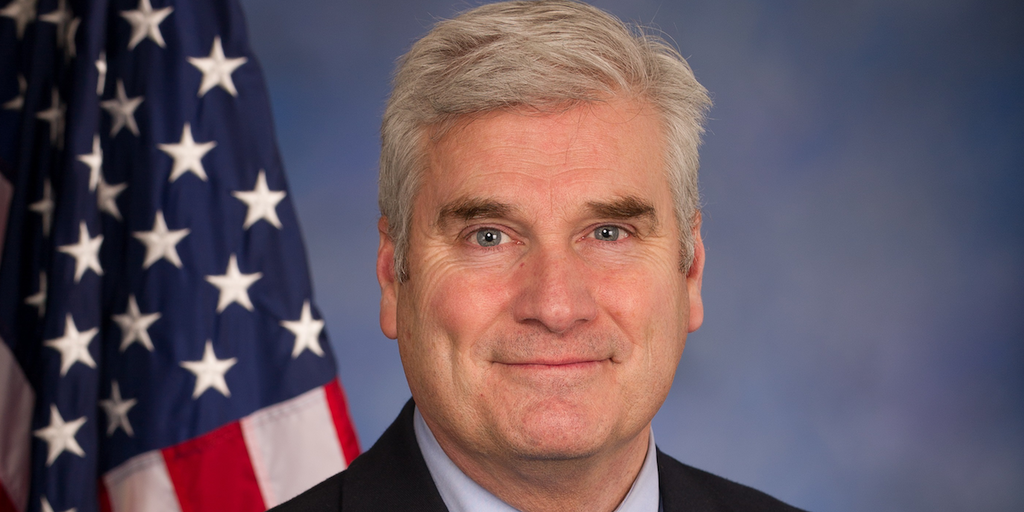
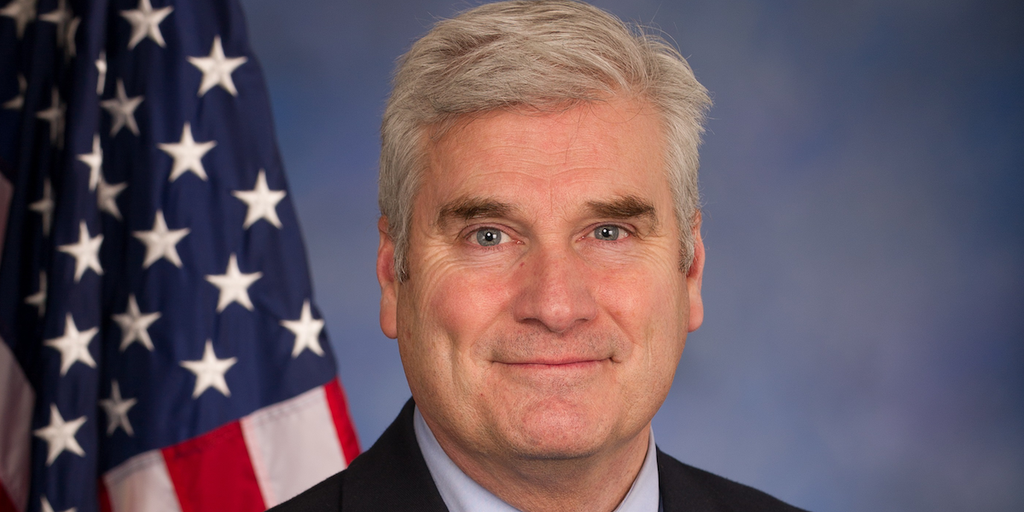
House Majority Whip Tom Emmer (R-MN) laid into Wyoming’s accelerating plans to issue its own stablecoin Thursday, issuing a rare rebuke of a fellow Republican crypto initiative.
“I respect the vote of the Wyoming people, however, I personally am vehemently against any government issuing a tokenized version of its currency,” Emmer told Decrypt. “At the federal level, this would be considered a central bank digital currency.”
Central bank digital currencies, or CBDCs—digital versions of a state’s fiat currency—have in recent years become a favored boogeyman of Republican politicians. GOP governors and President Donald Trump alike have worked to ban the development of CBDCs in the United States, given their perceived threat to user privacy. Many Republicans have taken to dubbing CBDCs as “Big Brother’s digital dollar.”
That’s because central bank digital currencies, unlike cryptocurrencies like Bitcoin or Ethereum, are managed by a central issuer that could have the ability to freeze funds or otherwise control how these currencies are spent. And while lacking the censorship-resistance of Bitcoin, CBDCs come with all the transparency: Every transaction made with a “digital dollar,” for instance, would be available to the central issuer for scrutiny.
And yet, on Wednesday, Wyoming’s Republican governor, Mark Gordon, announced that his state is planning to issue a cryptocurrency as soon as July: its long-planned stablecoin, WYST.
Those involved with the project insist that the stablecoin, even if it is issued by the Wyoming government, is nothing like a CBDC. Stablecoins are cryptocurrencies generally pegged to the price of the U.S. dollar, which allow users to trade in and out of crypto without exiting digital assets completely. They also serve as dollar equivalents in markets where dollars are restricted.
Anthony Apollo, executive director of Wyoming’s Stable Token Commission, maintained Thursday that even though he too is opposed to the notion of a state-backed CBDC, WYST is an entirely different type of product.
“Wyoming cares significantly about privacy,” Apollo told Decrypt. “We’re going to have rules in place about what we can and can’t collect, how we can treat that data, and how we can act on that data.”
The director added that the exact nature of such policies is still being ironed out internally. Wyoming’s government is also weighing relying on a third party like a centralized crypto exchange to handle data collection for WYST.
One of the chief criticisms levied against government issued tokens, though, is that whatever rules one administration makes about them, could always be changed by future ones.
Apollo went on to argue that unlike CBDCs, which are digitally issued by a central bank the same way cash is created, Wyoming’s stablecoin will be fully backed by reserves like U.S. Treasuries, and so does not pose inflationary risk.
“Wyoming is not a central bank,” Apollo said. “We are not issuing any cash.”
But why is a solidly red state attempting to issue any form of government-backed digital asset?
Backstage at the DC Blockchain Summit on Wednesday, Gov. Mark Gordon and Apollo made the case that a public stablecoin could offer key benefits private issuers—such as Circle, the issuer of USDC—would balk at, including lower fees and flexibility on touchier transactions like firearms purchases. Interest accrued from the token’s Treasury reserves would also fund the state’s school system.
But the token’s rollout has certainly brought with it questions about the role of government in issuing such a product. Apollo said it’s fairly common for him to have to field questions about whether WYST is a CBDC or not at public hearings and even in conversations with state legislators.
The topic is currently front of mind in Wyoming. Just weeks ago, Gordon signed a bill into law prohibiting the development of a CBDC in the state. The bill’s sponsor said a key purpose of the legislation was “to send a clear message to Congress: that Wyoming rejects the idea of essentially controlled digital currency.”
Daily Debrief Newsletter
Start every day with the top news stories right now, plus original features, a podcast, videos and more.
Source link
You may like


MELANIA Insider Hayden Davis Selling Millions of Dollars Worth of Memecoin Amid 95% Drop: On-Chain Data


Toulouse starts to accept crypto for public transport


Bitcoin, Crypto Prices Slide as Trade Tensions, Inflation Risks Rattle Markets


Will BlackRock Investors Stay Bullish?


Bitcoin Could Appear on 25% of S&P 500 Balance Sheets by 2030, Analyst Says


Centralization and the dark side of asset tokenization — MEXC exec
Law and Order
Stablecoin Bills Unfairly Box Out Foreign Issuers Like Tether, Says House Majority Whip
Published
3 days agoon
March 28, 2025By
admin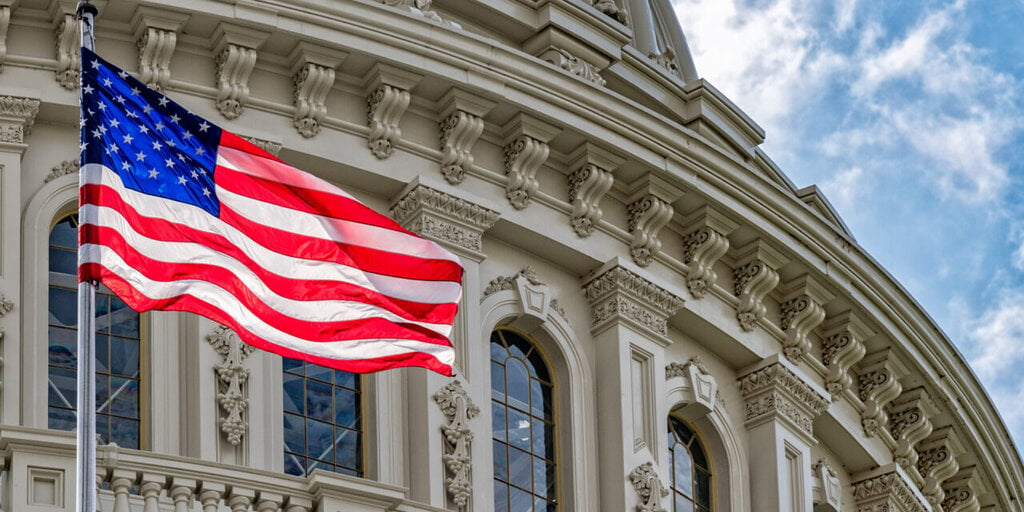
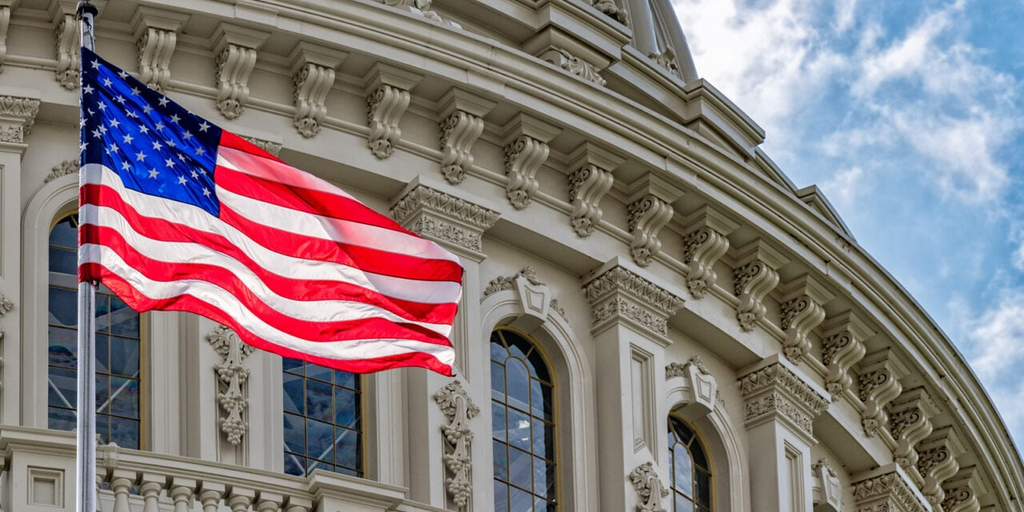
In a potential sign of brewing tensions regarding key language in multiple stablecoin bills circulating in Congress, House Majority Whip Tom Emmer (R-MN) said this week he doesn’t believe stablecoin issuers like Tether should have to comply with the anti-money laundering Bank Secrecy Act—a major sticking point of both the Senate’s stablecoin-focused GENIUS Act, and the House’s parallel STABLE Act.
Including such a provision in the legislation would unfairly box out foreign issuers, Emmer argues. The lawmaker believes stablecoin issuers, regardless of jurisdiction, should not be subject to the stringent anti-money laundering rules under the Bank Secrecy Act.
“The protections the so-called Bank Secrecy Act is supposed to provide were drafted for cash, and this is blockchain-driven,” Emmer told Decrypt Wednesday evening. “And guess what, everything on the blockchain is open and transparent to people who understand how to follow code.”
“It’s pretty interesting to say that the Bank Secrecy Act—which doesn’t even contemplate this type of technology, a digital asset—should be what we’re using,” the congressman added.
Stablecoins are digital assets typically pegged to the U.S. dollar and designed to keep a steady price. They’re used by cryptocurrency traders to enter and exit positions without the need for dollars, and used as dollar equivalents in markets where dollars are restricted or inaccessible.
The latest drafts of the GENIUS Act and STABLE Act treat all stablecoin issuers as financial institutions under the Bank Secrecy Act. The law, enacted in 1970, established a stringent set of proactive anti-money laundering rules that American banks must comply with in order to operate.
The Bank Secrecy Act, for example, obligates regulated institutions to engage in suspicious activity monitoring, undergo routine audits, hire compliance officers, and adopt a customer identification program mandated by the Patriot Act—the controversial law that expanded government surveillance powers shortly after the September 11, 2001, terrorist attacks.
Such requirements would pose quite a hurdle for existing foreign stablecoin issuers like Tether, the company behind USDT and the market’s undisputed leader. Tether, whose USDT stablecoin boasts a market capitalization in excess of $144 billion, is based in the U.S. Virgin Islands, and plans to move to El Salvador—but nonetheless is one of the world’s biggest purchasers of U.S. Treasuries, which it uses as collateral to back its U.S. dollar-pegged stablecoin.
In its current setup, Tether enjoys much less strict regulation than the Bank Secrecy Act would mandate, and the company’s leadership has implied that moves to force all stablecoin issuers to comply with such rules would hurt the firm and aid its competitors. By contrast, Circle, the issuer behind the market’s second-largest stablecoin USDC, is already based in the United States. While Circle does not yet comply with the Bank Secrecy Act, the company is regulated as a money transmitter by the New York Department of Financial Services.
Circle is also already in compliance with the European Union’s elaborate MiCA regulatory framework, a move Tether has resisted.
As stablecoin legislation in the U.S. nears a crescendo, questions have emerged regarding whether Tether would come to the United States if it had to comply with the Bank Secrecy Act—or, alternatively, what would happen if the stablecoin market’s top player was boxed out of American financial markets.
Emmer does not want to risk locking Tether, or any other foreign issuer, out of the burgeoning U.S. stablecoin sector.
“We’ve got to let everybody compete in this space,” he said.
That doesn’t mean Tether wouldn’t have to comply with certain rules in order to operate in the United States. To Emmer, the sticking point is proof of reserves—showing the government that your token is backed up with sufficient collateral to keep its value pegged to the dollar even in periods of market volatility.
To that end, Emmer believes Tether is, broadly speaking, doing well. In 2021, the company partnered with Wall Street firm Cantor Fitzgerald to help custody some of the $92 billion worth of U.S. Treasuries it claims to currently hold in reserve.
“Tether has done a great job straightening itself out in the last four years,” Emmer said.
The House Financial Services Committee is set to mark up the STABLE Act during a session next week. Meanwhile, the GENIUS Act already passed out of the Senate Banking Committee earlier this month with strong bipartisan support—Bank Secrecy language intact. It is likely to face a full vote on the Senate floor in the coming months.
Daily Debrief Newsletter
Start every day with the top news stories right now, plus original features, a podcast, videos and more.
Source link
Law and Order
SEC Officially Drops Cases Against Kraken, ConsenSys, and Cumberland DRW
Published
3 days agoon
March 28, 2025By
admin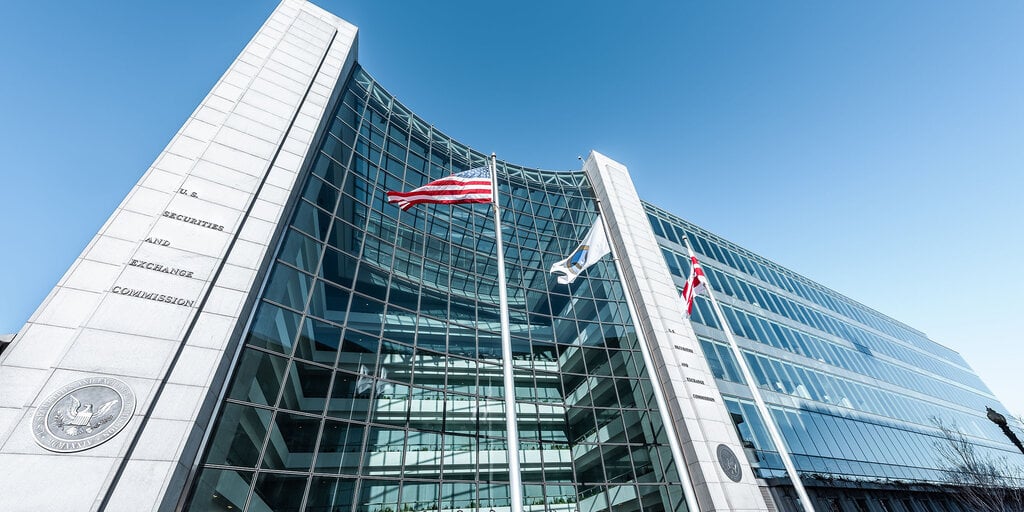
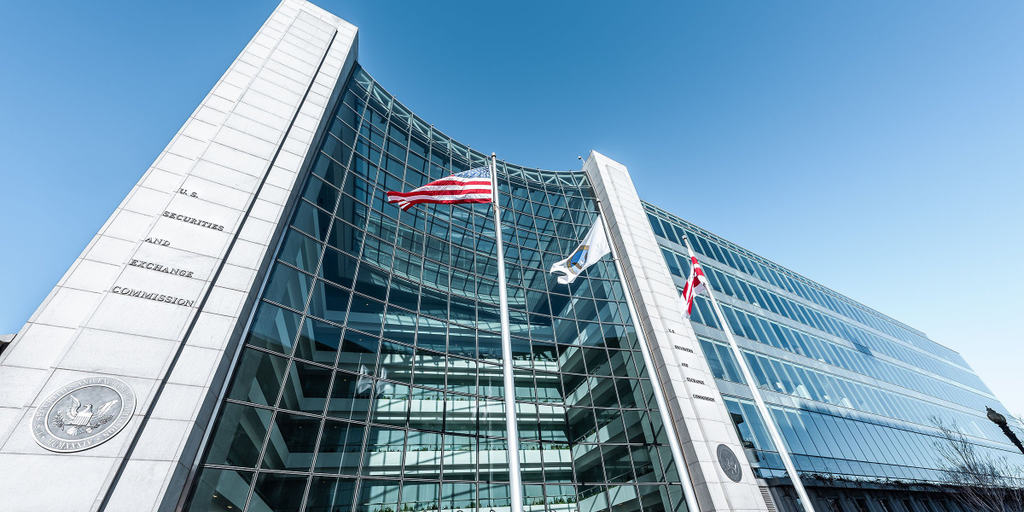
The U.S. SEC on Thursday dismissed enforcement actions against three major crypto firms, filing joint stipulations to drop the cases with prejudice, making the decisions final and not subject to refile.
Kraken, ConsenSys, and Cumberland DRW LLC all saw their respective lawsuits terminated simultaneously, marking the latest reversal in the agency’s regulatory approach toward digital assets.
The regulator has also officially closed its case against the exchange Crypto.com.
Disclaimer: ConsenSys is one of 22 investors in an editorially independent Decrypt.
The dismissals form part of a broader pivot in U.S. crypto regulation under the Trump administration, following similar ends to cases against Coinbase, Robinhood, Uniswap Labs, and OpenSea.
In a statement following the dismissal of civil enforcement action against Coinbase, acting SEC Chairman Mark T. Uyeda said these decisions were part of the agency’s “ongoing efforts” to “rectify its approach” and develop crypto policy in a “more transparent manner.”
Notably, the SEC emphasized that these dismissals do not “necessarily reflect the Commission’s position on any other case.”
The decision ends a “wasteful, politically motivated campaign,” Kraken said in a statement when the resolution for their case with the regulator arrived.
Kraken further characterized the SEC’s move as something that lifted “uncertainty” over what could have “stifled innovation and investment.”
The exchange provider later revealed its prospects of going public, potentially coming in as the second crypto firm to do so after Coinbase.
The resolution ends a tumultuous period for the industry. Each of the three companies had faced serious allegations under the prior Gensler regime.
Kraken was charged in November 2023 with operating an unregistered securities exchange, broker, dealer, and clearing agency.
ConsenSys faced accusations in June 2024 of unlawfully offering securities through its MetaMask Staking service.
Cumberland DRW, a Chicago-based trading firm, was sued in October 2024 for allegedly acting as an unregistered dealer handling over $2 billion in crypto assets.
Under acting Chairman Uyeda, the SEC had established a task force and actively engaged with the crypto industry, signaling a departure from the previous administration’s enforcement-focused approach.
Edited by Sebastian Sinclair
Daily Debrief Newsletter
Start every day with the top news stories right now, plus original features, a podcast, videos and more.
Source link
Law and Order
Elizabeth Warren Calls Stablecoin Bill a Trump and Musk ‘Grift’
Published
4 days agoon
March 27, 2025By
admin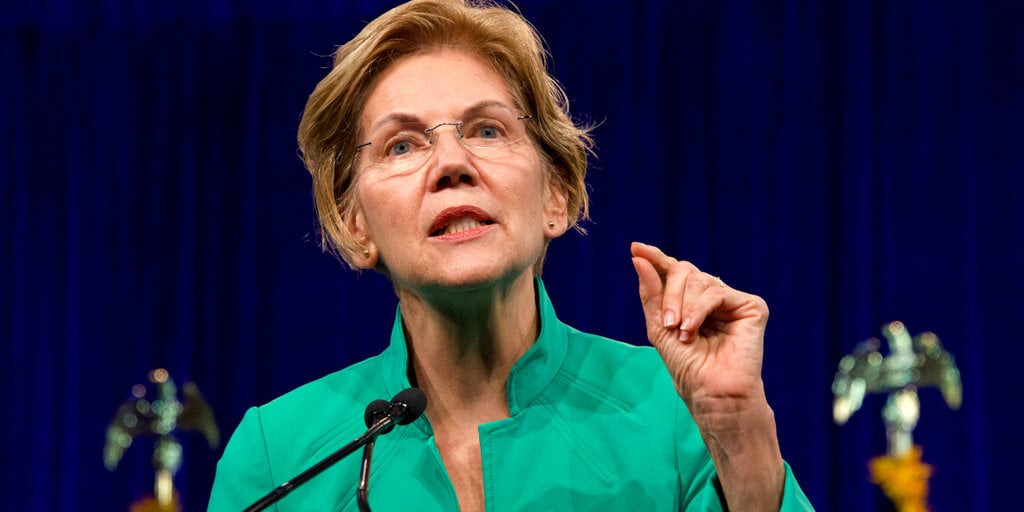

On Wednesday, U.S. Senator Elizabeth Warren (D-MA) took aim at a stablecoin-focused bill making its way through Congress, accusing U.S. President Donald Trump of using the legislation to further his own financial interests.
The Massachusetts senator shared the critique while linking a post about President Trump’s decentralized finance project, World Liberty Financial, launching its own stablecoin USD1 on Ethereum and Binance’s BNB Chain.
Warren voiced her concerns on social media, claiming President Trump is leveraging the project as a “grift” to “enrich” himself.
“Congress should step up and fix the current stablecoin bill moving through the Senate that will make it easier for Trump—and Elon Musk—to take control of your money,” Warren wrote, criticizing the “Financial Innovation and Technology for the 21st Century Act” (FIT21) bill.
The FIT21 bill seeks to create a clear regulatory framework for digital assets, with U.S. Rep. French Hill (R-AR) mentioning that in the “next few days,” legislators will roll out a revised bill.
In the meantime, the Trump administration is moving to make the U.S. the “crypto capital of the world” through a series of initiatives, including the creation of a SEC Task Force dedicated to overseeing digital asset regulations.
President Trump also called for “simple, common-sense rules for stablecoins and market structure” during a video call at the Blockworks crypto conference in New York last Thursday.
The stablecoin market currently holds over $238 billion in circulation, as per CoinGecko data, with Tether (USDT) making up a significant portion.
Trump’s crypto czar, David Sacks, has previously promised to introduce legislation on stablecoins and market structures within the first 100 days of Trump’s second term.
The Massachusetts senator recently challenged Sacks to prove he’s not “directly profiting off of the Trump Administration’s efforts to selectively pump the value of certain crypto assets,” as he claimed he sold all his crypto assets before beginning in his role as crypto czar.
Elon Musk’s influence within the government, particularly through his role in the Department of Government Efficiency (DOGE), has only fueled Warren’s concerns.
The initiative, which Musk heads, aims to reduce government bureaucracy and eliminate excess regulations, but it has faced criticism for potentially giving Musk—and by extension, his business interests—a disproportionate amount of influence over U.S. financial policy.
In January, Warren lambasted DOGE in a letter to the Dogecoin aficionado, accusing the department of being a potential “venue for corruption.”
The senator’s letter to Musk suggested a range of changes, including cracking down on tax loopholes for the wealthy and reforming government contracts to cut wasteful spending.
Edited by Sebastian Sinclair
Daily Debrief Newsletter
Start every day with the top news stories right now, plus original features, a podcast, videos and more.
Source link

MELANIA Insider Hayden Davis Selling Millions of Dollars Worth of Memecoin Amid 95% Drop: On-Chain Data

Toulouse starts to accept crypto for public transport

Bitcoin, Crypto Prices Slide as Trade Tensions, Inflation Risks Rattle Markets

Will BlackRock Investors Stay Bullish?

Bitcoin Could Appear on 25% of S&P 500 Balance Sheets by 2030, Analyst Says

Centralization and the dark side of asset tokenization — MEXC exec

Bitcoin Support Thins Below $78,000 As Cost Basis Clusters Shift Toward $95,000

Cryptocurrencies to watch this week: Solana, Cronos, DOT

EU Regulator Pushes for New Capital Rules for European Insurers Holding Crypto Assets

Japan Set To Classify Cryptocurrencies As Financial Products, Here’s All

This Week in Crypto Games: ‘Off the Grid’ Token, GameStop Goes Bitcoin, SEC Clears Immutable

Binance debuts centralized exchange to decentralized exchange trades

Why Is the Crypto Market Down Today? Bitcoin Drops to $82K as Traders Flee Risk Assets Amid Macro Worries

BTCFi: From passive asset to financial powerhouse?

Hyperliquid Delists $JELLY, Potentially Causing $900K in Losses. Here’s Why Best Wallet Token Can 100x

Arthur Hayes, Murad’s Prediction For Meme Coins, AI & DeFi Coins For 2025

Expert Sees Bitcoin Dipping To $50K While Bullish Signs Persist

Aptos Leverages Chainlink To Enhance Scalability and Data Access

Bitcoin Could Rally to $80,000 on the Eve of US Elections

Sonic Now ‘Golden Standard’ of Layer-2s After Scaling Transactions to 16,000+ per Second, Says Andre Cronje

Institutional Investors Go All In on Crypto as 57% Plan to Boost Allocations as Bull Run Heats Up, Sygnum Survey Reveals

Crypto’s Big Trump Gamble Is Risky

Ripple-SEC Case Ends, But These 3 Rivals Could Jump 500x

Has The Bitcoin Price Already Peaked?

A16z-backed Espresso announces mainnet launch of core product

Xmas Altcoin Rally Insights by BNM Agent I

Blockchain groups challenge new broker reporting rule

The Future of Bitcoin: Scaling, Institutional Adoption, and Strategic Reserves with Rich Rines

Trump’s Coin Is About As Revolutionary As OneCoin

Is $200,000 a Realistic Bitcoin Price Target for This Cycle?
Trending

 24/7 Cryptocurrency News5 months ago
24/7 Cryptocurrency News5 months agoArthur Hayes, Murad’s Prediction For Meme Coins, AI & DeFi Coins For 2025

 Bitcoin2 months ago
Bitcoin2 months agoExpert Sees Bitcoin Dipping To $50K While Bullish Signs Persist

 24/7 Cryptocurrency News3 months ago
24/7 Cryptocurrency News3 months agoAptos Leverages Chainlink To Enhance Scalability and Data Access

 Bitcoin5 months ago
Bitcoin5 months agoBitcoin Could Rally to $80,000 on the Eve of US Elections

 Altcoins2 months ago
Altcoins2 months agoSonic Now ‘Golden Standard’ of Layer-2s After Scaling Transactions to 16,000+ per Second, Says Andre Cronje

 Bitcoin5 months ago
Bitcoin5 months agoInstitutional Investors Go All In on Crypto as 57% Plan to Boost Allocations as Bull Run Heats Up, Sygnum Survey Reveals

 Opinion5 months ago
Opinion5 months agoCrypto’s Big Trump Gamble Is Risky

 Price analysis5 months ago
Price analysis5 months agoRipple-SEC Case Ends, But These 3 Rivals Could Jump 500x


